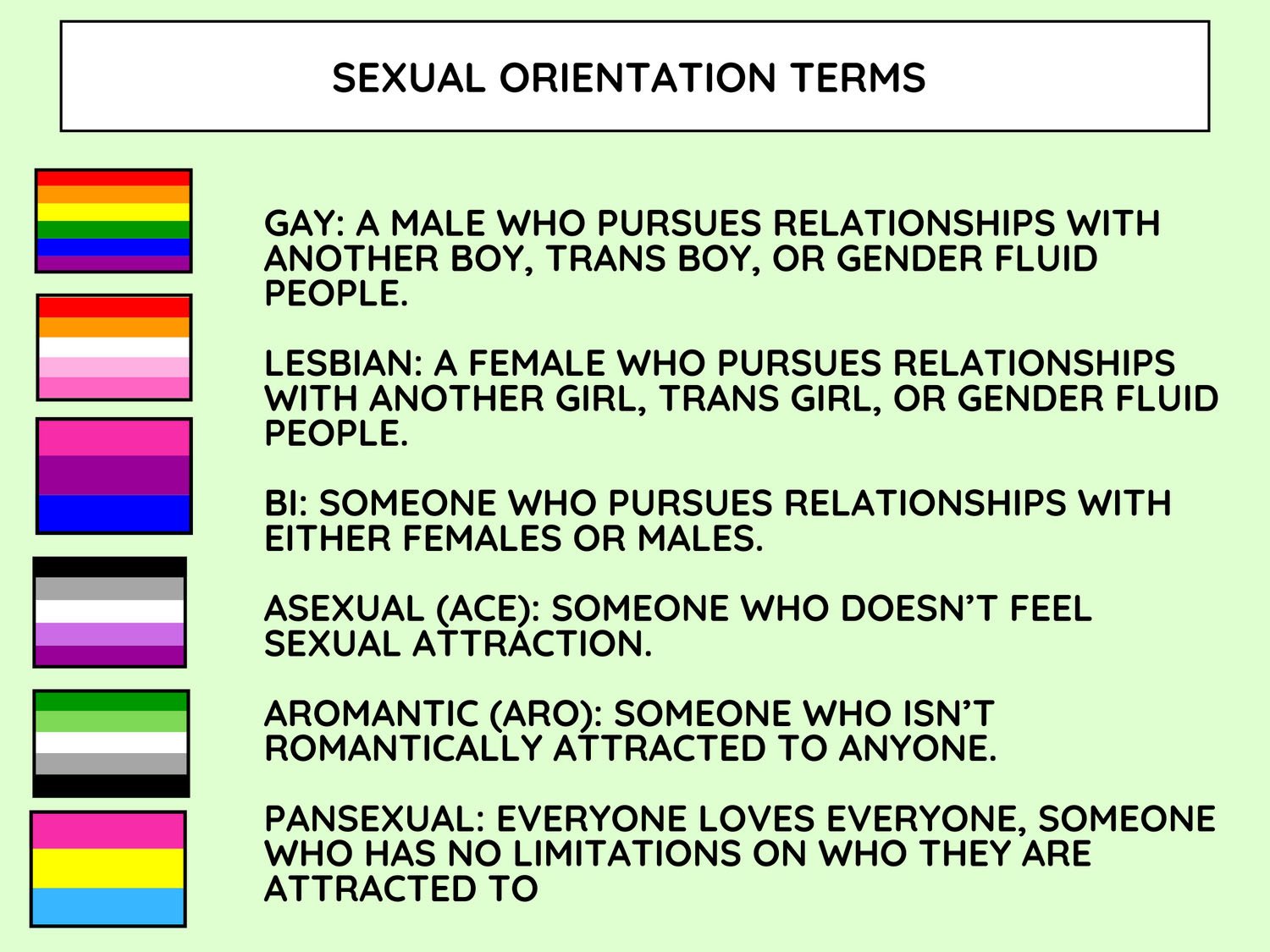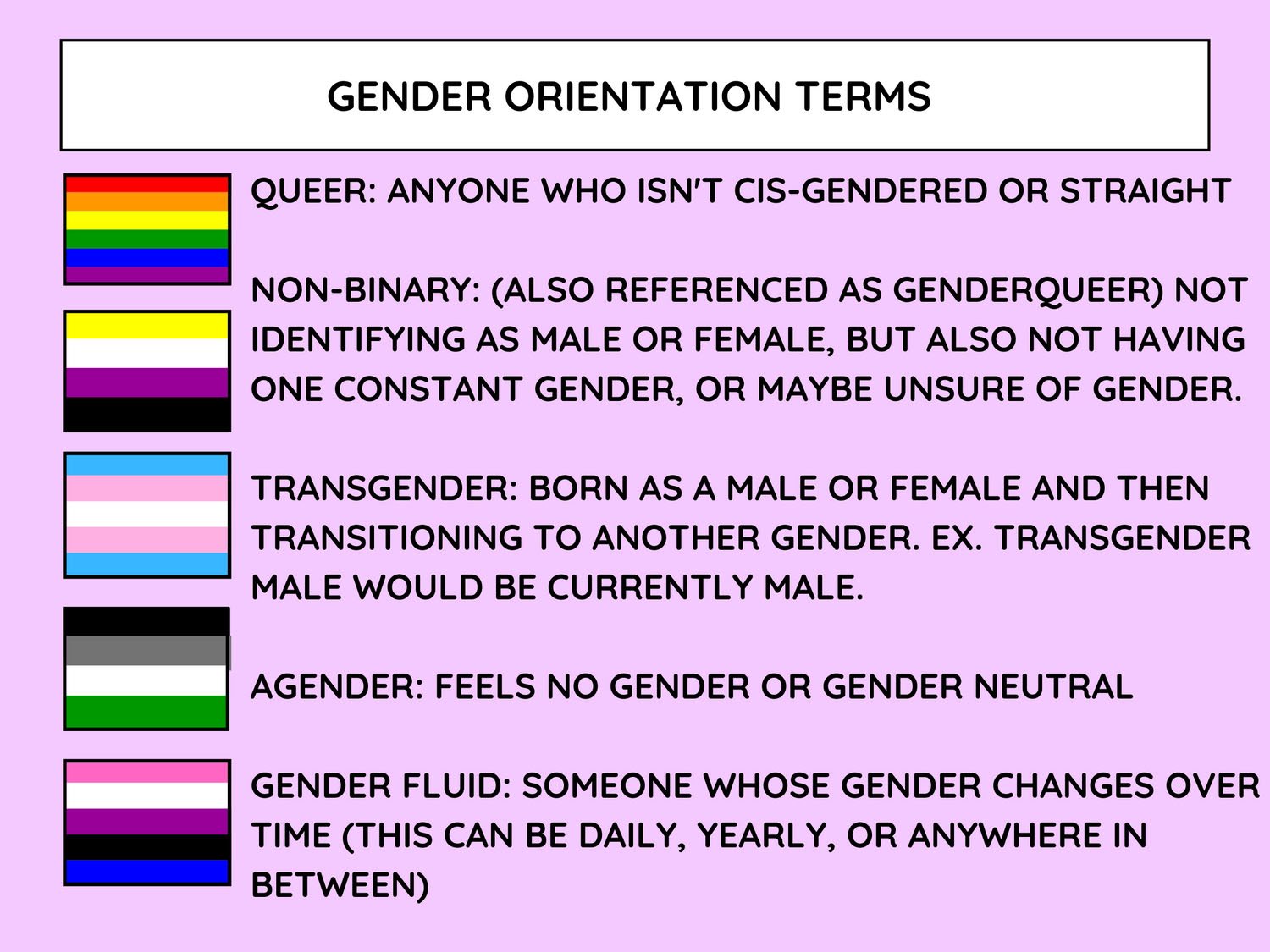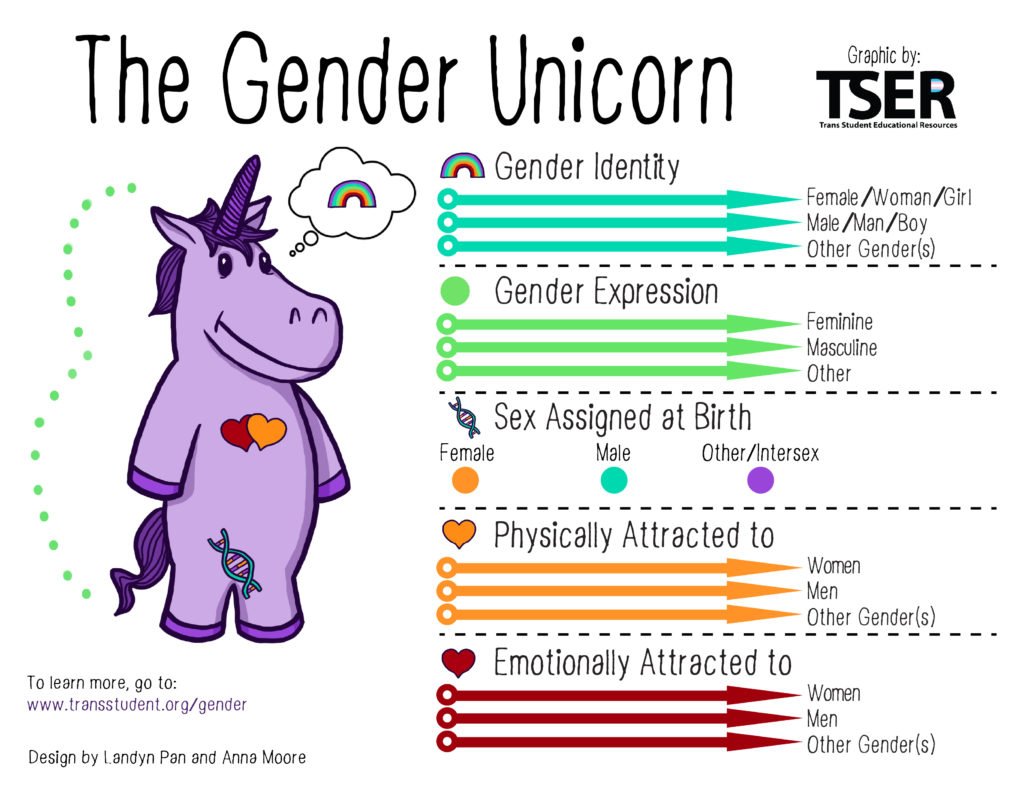Being An Ally
The National Institute of Health defines an ally as “someone who stands up for the equal and fair treatment of people different than themselves” (National Institute of Health, NIH). An ally is someone who understands and supports a community, such as the LGBTQ+ community. Allies are advocates who fight the challenges that LGBTQ+ community experiences. They truly care about the wellbeing of the LGBTQ+ community and stick up for them. Anyone can be an ally!
Being an Ally: Why?
Being an ally helps the LGBTQ+ community to feel accepted, respected and equal in all situations. Allies are critical for fostering welcoming, inclusive environments for everyone, including safe environments for LGBTQ+ people. Being an ally and advocating for the LGBTQ+ population ensures that they don’t have to take on the entire burden of fighting for their rights and equality on their own, and makes it known that they are supported by others.
Here are some statistics on the LGBTQ+ population in America and why being an ally is so important (via the Pew Research Center, Human Rights Campaign, and the National Institute of Health):
About 17% of adults younger than 30 identify as lesbian, gay or bisexual
Of adults younger than 50 who are lesbian, 69% identify as bisexual and 31% identify as gay or lesbian
This turns out to be about 11.3 million LGBTQ+ adults, and an additional 2 million LGBTQ+ youth aged 13-17 (from a 2015-2017 study)
About 5.1% of adults younger than 30 are transgender or nonbinary
19% of those who identify as bisexual say all or most of the important people in their life are aware of their sexual orientation, while 75% of gay or lesbian adults say the same. About 26% of bisexual adults say they are not “out” to any of the important people in their life, compared with 4% of gay or lesbian adults.
LGBTQ+ people are discriminated against, especially in the workforce:
11%-28% of LGB workers in 2016 lost promotions because of their sexual orientation
27% of transgender workers were fired, not hired, or denied a promotion in 2015.
50% of trans employees had been harassed at work in 2015
So, we see that there is a large prevalence of the LGBTQ+ community in the United States, and there is discrimination and disrespect that is happening. They are also not the majority, so, it is crucial for them to have a strong allyship among their heterosexual and cisgender peers. Being an ally represents our respect and acceptance of all people to be treated equally in school, workplace, and social environments and also can help the LGBTQ+ community feel more comfortable with coming out. Allies can also help with the battle against discrimination, bigotry, and hatred LGBTQ+ people face by combating the fear and misunderstanding of these communities through education and the spread of positive and truthful information.
Being an Ally: How?
Now we know what an ally is and why being one is so important. But how do you become an ally? What do allies do?
Understanding
The first part of being an ally is fully understanding the community you’re supporting, which may mean informing yourself on LGBTQ+ terms, news, and issues.
1.Be & Stay Informed – This means educating yourself on LGBT-related terms, definitions, news, and issues. For example, if you don’t know the difference between gender identity and sexual identity, being an ally means taking the time to learn that! Here are some of the main terms and their definitions below from this source:
The Human Rights Campaign also has a great, more extensive glossary of terms.
2. Have Conversations – The best way to learn about LGBTQ+ experiences is to talk to your friends and peers who are a part of this community. If you know a friend or family member who is out and comfortable having these discussions with you, make sure to be open and honest about what you know and what you would like to learn more about and how you can support them as an ally. Be reassuring with them that you are always still there for them and your respect for them has and won’t change. At the same time, respect peoples’ privacy and don’t share their sexual or gender identities without permission. Some example questions you could ask to show your interest are:
What was it like growing up?
How did you know it was the right time to come out?
What has the coming out process been like for you?
How are you holding up?
What can I do to support you?
How would you like me to refer to you?
Have you told anyone else?
Would you like me to keep this between us?
3. Have Humility – To have humility is to be humble when educating yourself and speaking up about LGBTQ+-related topics and issues. As an ally, this means being a good listener to members of the LGBTQ+ community/listening more than you speak, keeping the focus off of yourself and your experiences, being willing to learn, and being open to correction. Overall, having humility is genuinely trying to learn more about the LGBTQ+ experience because you want rather than doing so to ‘look good’ in others’ eyes.
Supporting
Besides understanding, the second part of being an ally is supporting the LGBTQ+ community, which takes form in multiple ways.
Be Accepting – Acceptance is about being personally kind, welcoming, and open to anyone who is part of the LGBTQ+ community. But, acceptance is only one part of allyship, and to be a true ally, being informed and taking action, and actively striving for fair treatment for everyone is also necessary.
Take Action – Taking action means outwardly striving for equal rights for everyone, no matter their gender or sexual identities. Taking action can mean educating yourself, as suggested above in the “Be & Stay Informed” section, or also working on any implicit biases you may have and self-improving, or speaking up against any systemic biases that may affect the LGBTQ+ community in workplace, school, or social settings. Taking action is perhaps the most important part of being an ally, and can be the most impactful. Two main ways you can take action are:
Speaking Up – As an ally, you should speak out against any LGBTQ+ discrimination that you encounter. It may be challenging or nerve-wracking to speak up, but it truly shows your support for your LGBTQ+ peers and can make a big difference. Speaking up not only includes saying “hey, that’s wrong” but also explaining why the certain situation is wrong. Standing up for LGBTQ+ people while simultaneously educating others is a great way to be an ally. Situations where you can speak up can be when you hear an offensive or discriminatory comment targeted at LGBTQ+ people or encounter discriminatory or unequal policies at work or school.
Supporting Equality – To take action not only means using your voice to stand up for the LGBTQ+ population, but also using your abilities to vote and acting to push for equality and equity for all. For example, you can support and push for policies at school or work that protect your LGBTQ+ peers from discrimination or work against any policies that may be unfair.
Come Out as an Ally – Coming out as an LGBTQ+ ally is outwardly showing your support for the community. This can mean joining a Genders and Sexualities Alliance or any other LGBTQ+ group open to anyone, posting messages of support online, or attending pride celebrations. Knowing there are allies out there makes a difference!
Daily Ways to Be an Ally
Introduce yourself using pronouns
Follow and engage with pro-LGBTQ+ causes or groups on social media
Watch movies or shows that feature LGBTQ+ topics or characters such as “Queer Eye,” “Call Me By Your Name,” “Love, Simon,” or “The Fosters.”
Practice using inclusive language in your everyday conversations.
All Information sourced from the National Institute of Health, Harvard Business Review, Human Rights Campaign, the Youth Engaged 4 Change government organization, and the Pew Research Center.









